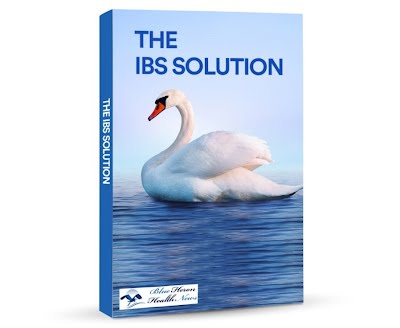
The IBS Program™ / The IBS Solution™ By Julissa Clay The IBS program comes in the format of a step-by-step program that can be purchased by anyone curious. The product is designed for everyone who wants to control their IBS symptoms and enjoy a pain-free life. One of the most impressive aspects of this program is that you may complete the workouts. You may do the workouts during the lunch hour, on a flight, or even at the house, and the great news is that you don’t need special equipment to complete them.
What is the typical duration of an IBS flare-up?
The duration of an IBS (Irritable Bowel Syndrome) flare-up can vary widely from person to person, depending on the severity of the condition, triggers, and individual response to treatment. However, a typical IBS flare-up lasts anywhere from a few hours to a few days. In some cases, flare-ups can persist for weeks or even longer if the underlying triggers, such as diet, stress, or other factors, are not managed effectively.
Here’s a closer look at the duration and factors influencing IBS flare-ups:
1. Short-term Flare-ups (Hours to Days)
- Many people with IBS experience flare-ups that last a few hours to a couple of days. These shorter episodes are often triggered by specific factors like consuming certain foods, experiencing stress, or having a disruption in normal bowel habits.
- Once the trigger is removed or addressed (such as avoiding problematic foods or reducing stress), symptoms typically subside within this time frame.
2. Moderate Flare-ups (Several Days to a Week)
- Some flare-ups may last up to a week or slightly longer, especially if multiple triggers are involved or if the person has difficulty identifying or managing the causes.
- If flare-ups persist over several days, it’s usually because the factors driving the flare (such as diet, gut irritation, or stress) continue to impact the digestive system.
3. Prolonged Flare-ups (Weeks or More)
- In some cases, flare-ups can last weeks or longer. Prolonged episodes may occur when IBS is more severe or when there are ongoing, unaddressed issues like chronic stress, significant dietary changes, or underlying gastrointestinal conditions (e.g., small intestinal bacterial overgrowth, or SIBO).
- Prolonged flare-ups might also occur when there’s a delay in treatment, or the usual management strategies (dietary changes, medications) are not effective.
Factors Affecting the Duration of an IBS Flare-up:
- Dietary Triggers: Foods that are high in FODMAPs (certain fermentable carbohydrates) or fatty, spicy foods are common triggers for IBS flare-ups. The duration of a flare-up can depend on how quickly these foods are eliminated from the diet or how the digestive system reacts to them.
- Stress: Psychological stress can exacerbate IBS symptoms, and the length of the flare-up may depend on how quickly stress is managed or resolved. Some people may experience prolonged flare-ups during periods of high stress or anxiety.
- Hydration and Fiber Intake: For IBS patients, both dehydration and the wrong type of fiber (insoluble vs. soluble) can worsen symptoms. Adjusting fluid and fiber intake can help shorten the duration of a flare-up.
- Medications and Treatment: Using medications like antispasmodics, laxatives (for constipation), or antidiarrheals can help reduce the duration of a flare-up. Probiotic supplements or low-dose antidepressants can also be helpful in managing symptoms.
- Comorbid Conditions: Other health issues, such as infections, hormonal fluctuations (particularly in women), or other gastrointestinal disorders, can prolong flare-ups.
Managing the Duration of IBS Flare-ups:
- Identifying Triggers: Keeping a food and symptom diary can help identify what may be causing or prolonging flare-ups.
- Stress Management: Techniques such as meditation, yoga, and cognitive-behavioral therapy (CBT) can help reduce stress-related IBS flare-ups.
- Dietary Adjustments: Adopting a low-FODMAP diet or avoiding known trigger foods can shorten the duration of flare-ups.
- Medications: Depending on whether the symptoms include diarrhea, constipation, or abdominal pain, different medications may help reduce the intensity and duration of flare-ups.
Conclusion
The typical duration of an IBS flare-up ranges from a few hours to several days, but in some cases, it can last weeks or longer if triggers are not managed effectively. Identifying and addressing specific triggers (diet, stress, etc.) can help reduce the length and severity of these flare-ups.
The IBS Program™ / The IBS Solution™ By Julissa Clay The IBS program comes in the format of a step-by-step program that can be purchased by anyone curious. The product is designed for everyone who wants to control their IBS symptoms and enjoy a pain-free life. One of the most impressive aspects of this program is that you may complete the workouts. You may do the workouts during the lunch hour, on a flight, or even at the house, and the great news is that you don’t need special equipment to complete them.